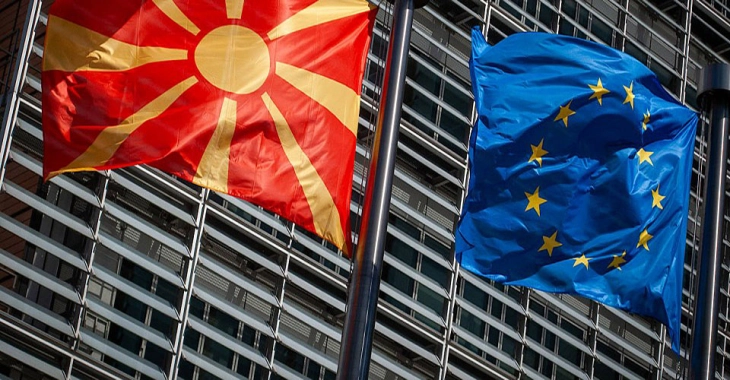Constitutional change won't be discussed at EU-Western Balkans Summit: sources
- Tomorrow’s EU-Western Balkans Summit won’t be dedicated to enlargement of the bloc, but it will tackle issues in relation to the region’s Growth Plan, the alignment of the Western Balkan partners with the common foreign and security policy, the impact of Russia’s invasion of Ukraine on their economies as well as migration, meaning the leaders won’t discuss issues involving the negotiating process, including changes to North Macedonia’s Constitution, European Council sources say.

Brussels, 17 December 2024 (MIA) – Tomorrow’s EU-Western Balkans Summit won’t be dedicated to enlargement of the bloc, but it will tackle issues in relation to the region’s Growth Plan, the alignment of the Western Balkan partners with the common foreign and security policy, the impact of Russia’s invasion of Ukraine on their economies as well as migration, meaning the leaders won’t discuss issues involving the negotiating process, including changes to North Macedonia’s Constitution, European Council sources say.
However, the issue may be raised during a summit debate on reconciliation, even though the debate, according to them, shouldn’t be linked with the negotiating process.
The same sources say that North Macedonia and the other EU membership candidate countries should work on meeting the criteria defined under the Negotiating Framework, including constitutional change.
“We hope they will be implemented as soon as possible and the negotiating process will resume successfully,” they add.
Without naming the country, the EU leaders in the draft-Brussels Declaration, say that “reconciliation, inclusive regional cooperation and good neighbourly relations are at the heart of the European Union. Implementing international agreements in good faith and with tangible results, including the Prespa Agreement with Greece and the Treaty on Friendship, Good Neighbourliness and Cooperation with Bulgaria, is therefore essential.”
“Decisive further efforts are still required to foster reconciliation and regional stability, as well as to find and to implement definitive, inclusive and binding solutions to partners’ regional and bilateral disputes and issues rooted in the legacy of the past, in line with international law and established principles, reads the so-called Brussels Declaration, due to be adopted Wednesday at the EU-Western Balkans Summit.
In an interview with five journalists from Western Balkan media outlets, including MIA, the President of the European Council, António Costa, said efforts must be made for the country to fully meet its commitments, which are set as preconditions for the country to formally open accession negotiations.
“It's necessary to respect what North Macedonia has already committed to. I think it's very important to achieve this, to strengthen the confidence between North Macedonia and the neighbours, especially with Bulgaria, and we need to work on ensuring that North Macedonia respects all the commitments that are a precondition to formally open the negotiations. I have great respect for the huge effort made by North Macedonia in the past to overcome the obstacles, especially with Greece. It is a partner that even changed its name to overcome this obstacle,” Costa said in a response to MIA’s question.
MIA file photo







